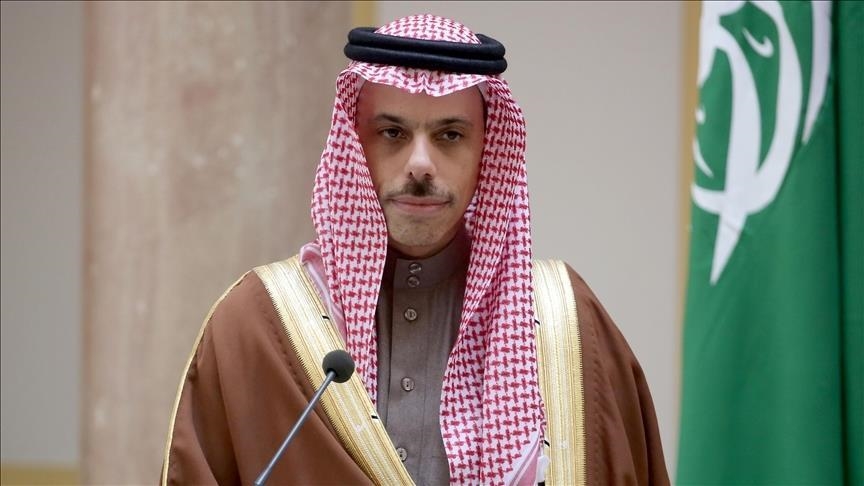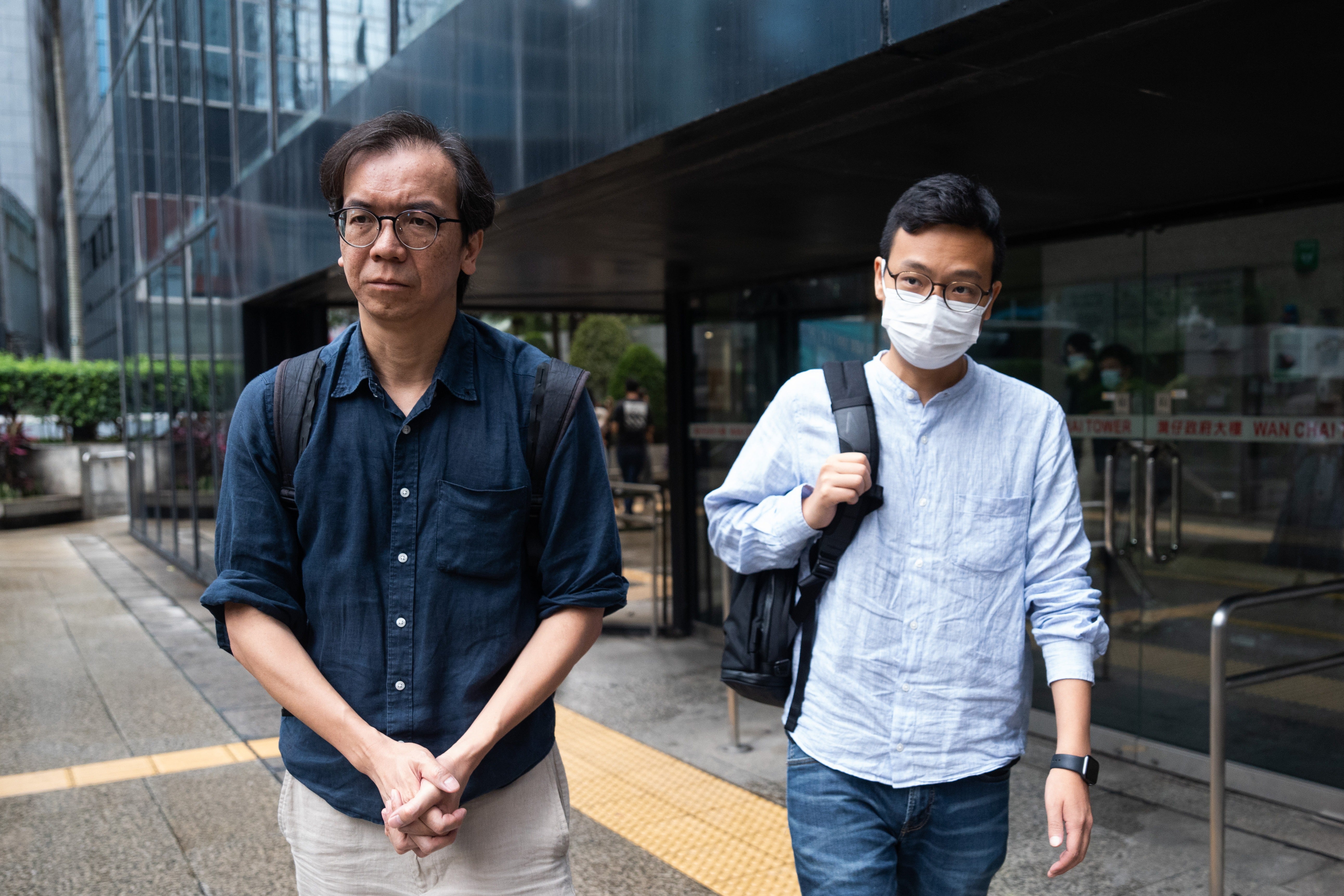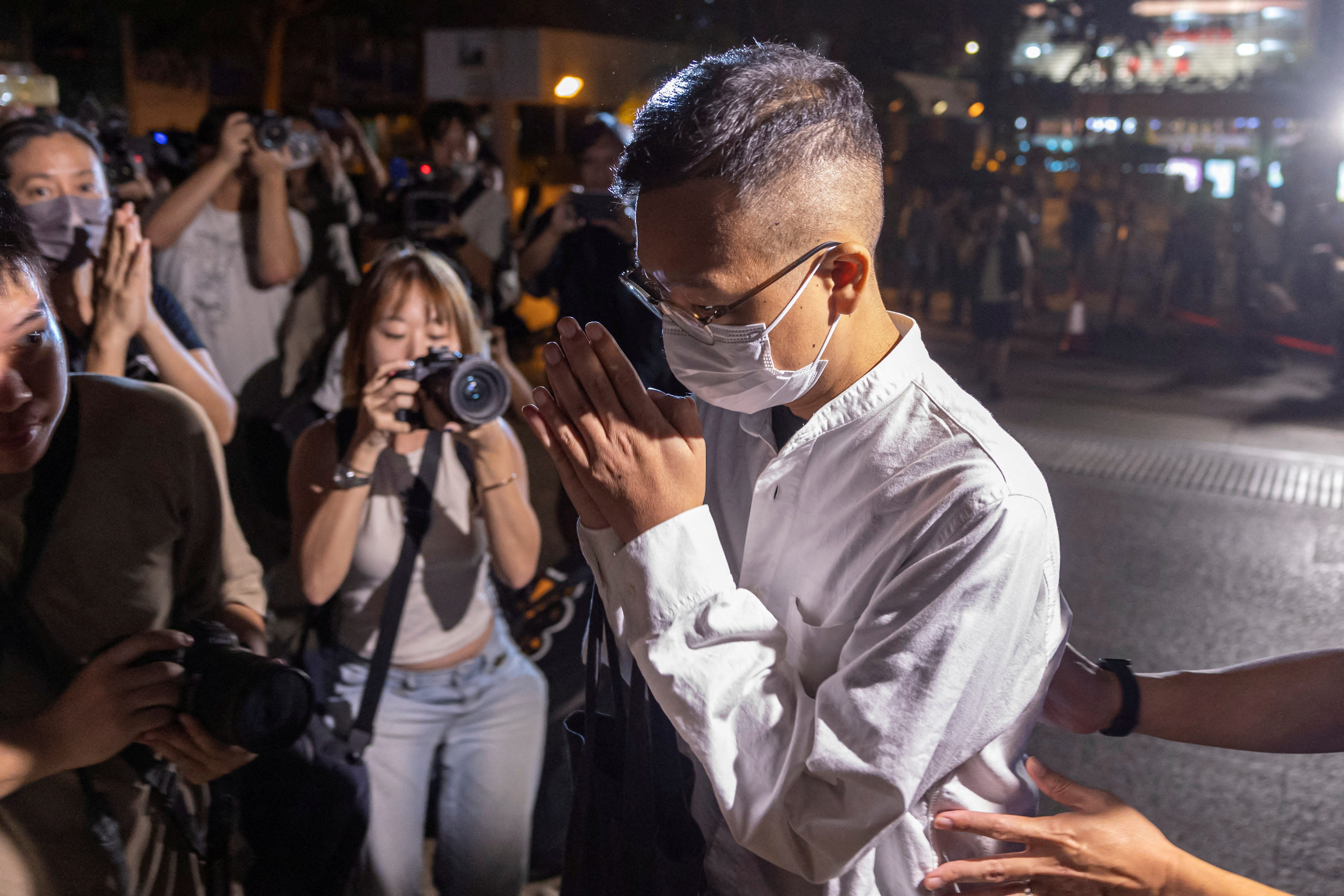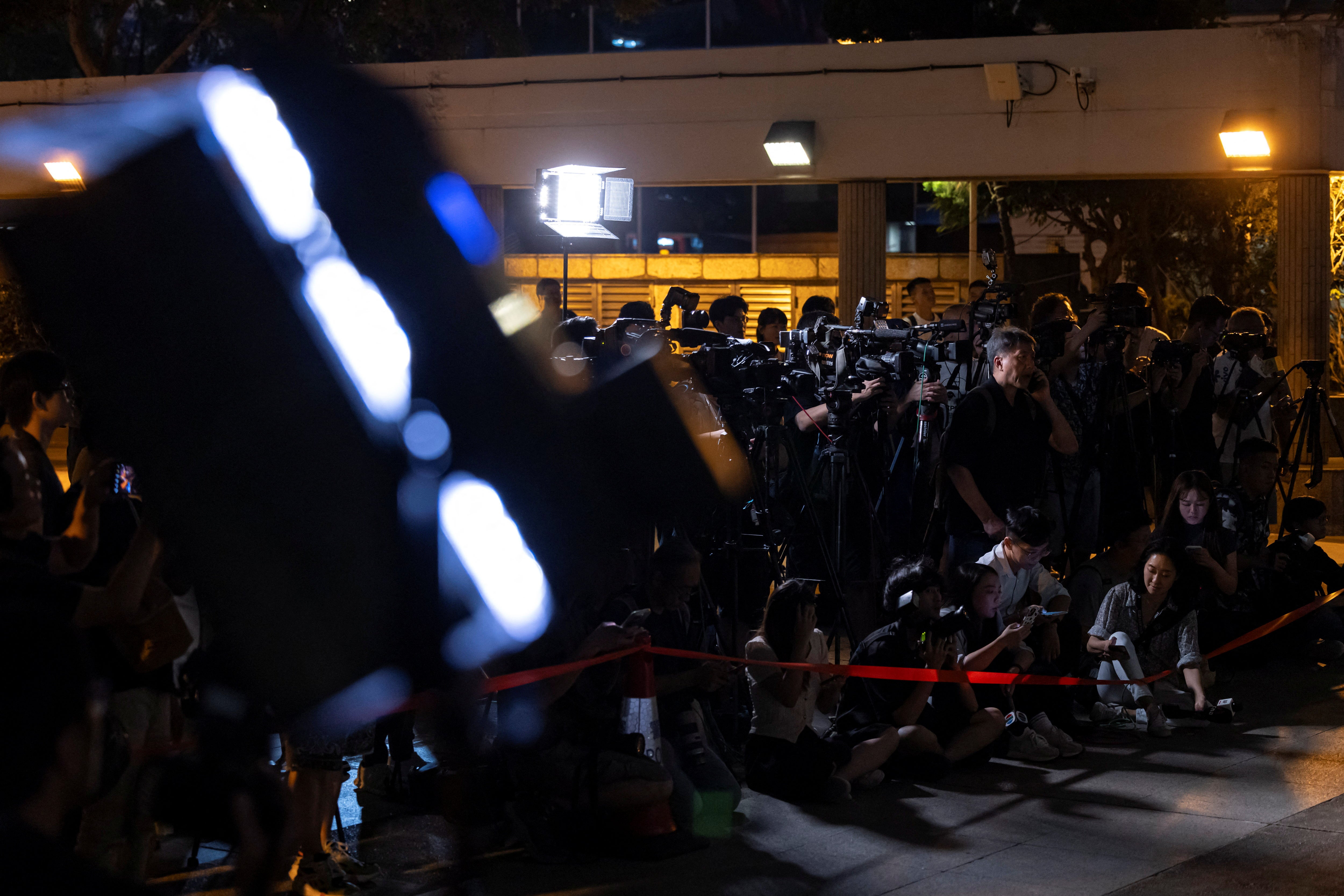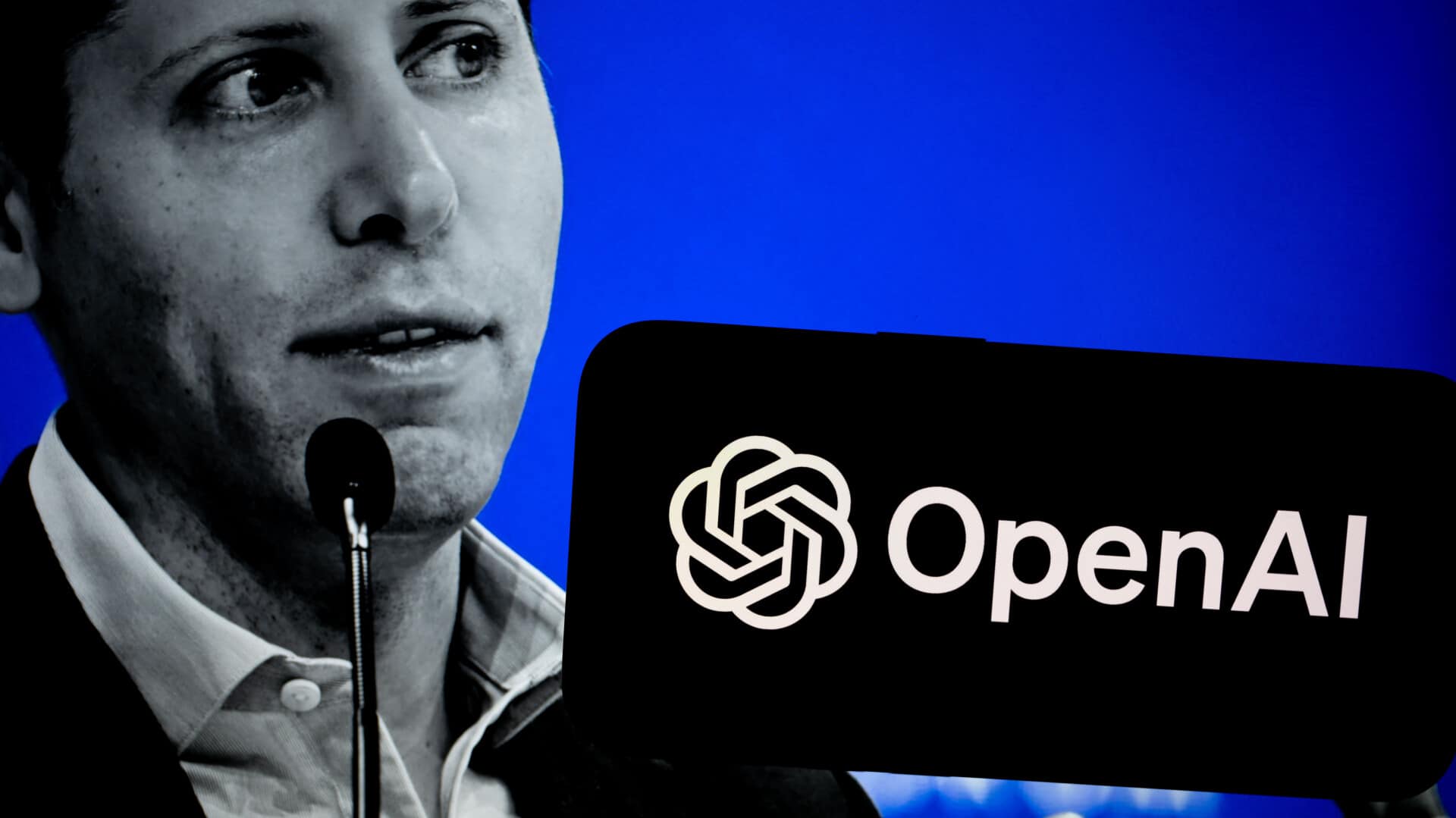Kenya has responded to rising food prices and climate shocks with a drive for intensive farming, but environmentalists warn that weak pesticide regulation and pressure from the US agrochemical lobby are putting the health of farmers and the wider public at risk.
President William Ruto has said that Kenya needs to become agriculturally self-reliant to save millions of dollars in food imports, and has backed this goal with a farmer-support programme he says is aimed at “putting the shame of hunger behind us once and for all”.
More than 75% of the agrochemicals used in Kenya in 2020 – the latest figures publicly available – are categorised as Highly Hazardous Pesticides (HHPs), which means they pose serious health risks to humans and the environment, according to the Route to Food, an initiative that promotes food security in Kenya.
Among those HHPs is paraquat, manufactured by the Swiss-based agro-technology giant Syngenta, which has increasingly been linked to Parkinson’s disease – an incurable degenerative brain disorder. Banned in the EU, paraquat remains legally available in Kenya.
An investigation, led by Lighthouse Reports with reporting from The New Humanitarian and other international media outlets, has found that a “reputation management” firm – partly funded by US taxpayers – has been quietly undermining efforts to protect people in parts of Africa and Asia from the health threats posed by hazardous pesticides.
v-Fluence, the Missouri-based company, provides self-described services that include “intelligence gathering”, “proprietary data mining”, and “risk communications”.
The company is named as co-defendants in a US legal case against Syngenta by a woman and her son – Donna and James Evitts – who both suffer from Parkinson’s disease and claim it is linked to decades of paraquat use. v-Fluence is accused of helping the Chinese-owned firm suppress information on the risks of the herbicide for over 20 years.
Our investigation reveals that v-Fluence has won US government contracts worth more than $400,000 to undertake similar work to “neutralise” – the wording of the US lawsuit – critics of “modern agriculture approaches” in Africa and Asia.
That included the creation of a private, members-only portal for pesticide company employees and influential allies, which enabled them to access personal information about hundreds of individuals from around the world deemed a threat to industry interests.
‘They didn’t tell me that the chemicals were harmful’
Awareness of Parkinson's disease is low in Kenya, as with most countries in the Global South. Specialists are few, misdiagnosis is common, and stigma acts as a further barrier to seeking the treatment that can slow its progression.
When John Kiunjuri first noticed his hands shaking, he didn’t think much of it. He had been employed in his mid-40s by a commercial farm growing vegetables and flowers for export in Meru, eastern Kenya, where his work included mixing herbicides – without gloves or a mask – and he didn’t initially make any connection.
After his contract ended in 1998, the tremors worsened. By 2016, he couldn’t hold a teacup. A doctor at Nanyuki General Hospital eventually diagnosed Parkinson’s disease, and told him that his condition could have been a result of the agrochemicals he had handled.
“They didn’t tell me that the chemicals were harmful,” said Kiunjuri of his former employer. “If they had done so, I would have left earlier.”
Kiunjuri, now 75, doesn’t know the names of the pesticides he was exposed to, but he does recognise the packaging of Syngenta’s paraquat as one of them.
The African Center for Corrective and Preventive Action, a legal aid NGO, and Kenyan lawyer Kelvin Kubai, are suing a raft of agrochemical firms – including Syngenta East Africa – on behalf of Kiunjuri and other former farm labourers whose health has allegedly been affected by handling paraquat and other HHPs.
Meanwhile, the Evitts case is just one out of thousands being brought in the United States by people alleging they developed Parkinson’s after exposure to paraquat. The first US trial is scheduled to begin in February.
When asked for comment, Syngenta denied the allegations made in the Evitts lawsuit and said scientific studies “do not support the claim of a causal link between exposure to paraquat and the development of Parkinson’s disease”. The company did not answer questions about v-Fluence, saying it would address those claims in court.
Despite Syngenta’s denial of any evidence of a connection between paraquat and Parkinson’s, new research published this year in the International Journal of Epidemiology says there is an “indication” of increased risk.
‘They are definitely compromised’
Pesticide companies claim their products are safe if properly handled, but the reality at the field level is that farmers are extremely vulnerable. They often don’t have basic protective gear like masks and gloves, are unlikely to have had proper training on applying the chemicals, and the printed instructions on the products are rarely in a language commonly spoken in the area.
Kenya is a rapidly growing market for agrochemicals, and campaigners have tried to keep the most dangerous off the shelves – pesticides believed to cause cancers, birth defects, and to disrupt hormonal and nervous systems.
Kenya’s Pest Control and Products Board (PCPB) is a statutory body that regulates the importation and safe use of agrochemicals. Yet out of all the HHPs registered and legally sold by international companies in Kenya, nearly half are banned in the EU and the United States.
In 2019, Kenyan MPs launched a parliamentary inquiry into more than 200 of these HHPs, but the process has since stalled, with many of the agrochemicals that the lawmakers wanted banned still on the Kenyan market.
Part of the problem is that the PCPB is both understaffed and underfunded. It has a cosy relationship with pesticide manufacturers, and tends to rely on their research into the long-term effects of their products.
“They are definitely compromised,” said MP Gladys Shollei, who tabled a public petition that led to the 2019 parliamentary inquiry. “They are in bed with the agrochemical companies because it's big money.”
The PCPB did not respond to questions before publication.
In 2021, civil society organisations again urged the PCPB to introduce regulations on HHPs. They called for priority to be given to 30 active ingredients that left dangerously high residue on fruits and vegetables.
Last year, the PCPB finally introduced new guidelines for the phased withdrawal of nine active ingredients by the end of 2024, but paraquat was not among them.
Campaigners are still waiting for the PCPB’s regulatory review of the broader list of more than 200 HHPs, including all carcinogenic, mutagenic, endocrine disruptors, and neurotoxic pesticides. Rights groups have called on the board to “expedite and publish the findings”.
Shaping public opinion
v-Fluence is run by Jay Byrne, a former senior US Agency for International Development (USAID) official who went on to head corporate communications at the biotechnology company, Monsanto.
Between 2013 and 2019, v-Fluence was hired by USAID to provide support for its programmes in Africa, including by encouraging the use of powerful pesticides and the adoption of Genetically Modified Organisms (GMOs).
The main contract, funded by USAID, was with the Washington-based International Food Policy Research Institute, or IFPRI.
v-Fluence’s role was the “sensing/monitoring” of biotechnology issues deemed important to the success of US-backed agricultural programmes, according to the statement of work document seen by The New Humanitarian. This was to counter what v-Fluence termed “opportunistic stakeholders who had become prolific at generating and promulgating content that is critical of modern agriculture approaches”, the document says.
v-Fluence went on to create Bonus Eventus, a members-only agriculture forum dominated by agrochemical industry professionals and also containing some US government officials, which has been used to coordinate efforts to undermine pesticide reduction.
Byrne denied that v-Fluence had “any past or current contracts” with USAID or the US Department of Agriculture (USDA), but it was unclear if his denial included subcontracted work. In a statement to the investigation, he also denied that the company engaged in any “unethical, illegal, or otherwise inappropriate outreach, lobbying, or related activities”.
Yet Bonus Eventus has compiled detailed profiles of around 500 campaigners, scientists, and environmentalists perceived to be working against agrichemical interests.
These profiles – described as “background on the critics” – include people’s photos, addresses, telephone numbers, and even details on their families. Many of the pages also feature a “criticisms” section, containing negative information about the individual.
Category tags on these “wiki”-style pages allow forum members to browse through topics of particular interest, such as "pesticide advocacy", "water-climate advocacy", or "PFAS [so-called forever chemicals] advocacy", to identify “critics” active in those issue areas.
These include prominent African environmental campaigners and civil society organisations. At least 11 Kenyans – from NGO activists to politicians and journalists – are listed as “critics” on the Bonus Eventus site.
One of them, Hellen Ngema, a sustainable agriculture expert, had no idea she had been profiled, had not given her permission, and said she felt “threatened” as a result of being named.
“I feel like that if I'm profiled, I can actually be targeted by criminals, so that the voice of the people I represent – the smallholder farmers in Kenya – are not heard,” she told The New Humanitarian.
Records obtained by this investigation suggest that the Bonus Eventus forum was at least partly funded by USAID’s Program for Biosafety Systems (PBS), the US government’s key project to introduce GM technology in Africa.
As part of v-Fluence's 2014 contract with the PBS, the company said it would “create a private social network portal" where PBS collaborators could "share monitoring information, research, ongoing training, and tactical support". And in response to written questions to this investigation, Byrne said the “stakeholder tracking” and “issue research” described in the contract was provided via the Bonus Eventus wiki.
In June 2019, the World Food Preservation Centre (WFPC) – an NGO that works with researchers on stemming post-harvest losses – had planned to hold a conference in Nairobi, Kenya. The aim was to provide regional policymakers with the best science about pesticide reduction and alternative farming techniques.
Records obtained through freedom of information (FOI) requests show that Byrne sent out one of his regular weekly newsletters in February 2019 to members of the Bonus Eventus network, warning that proposed speakers at the conference included “anti-science critics of conventional agriculture”, and that “promotional materials include claims that GMOs and pesticides may cause cancer and other diseases”.
The following day, in an email seen by The New Humanitarian, Margaret Karembu, an influential Kenyan biotech policymaker – and early member of Bonus Eventus – wrote to US Foreign Agriculture Service officials in Nairobi, warning that the “[pesticides conference] is a big concern and we need to strategise”.
Days later, WFPC received an email from the African Development Bank (AfDB), one of the key funders, announcing the withdrawal of its sponsorship. Martin Fregene, director of agriculture and agro-industry at AfDB, wrote: “I am afraid the aforementioned conference is one-sided and sends a wrong message about the AfDB's position on agricultural technologies approved for use by regulatory bodies.”
In an emailed response to The New Humanitarian, an AfDB spokesperson said the Bank had been contacted by Syngenta, which had “expressed concerns” that the conference “was one-sided”. On that basis, the AfDB had pulled its support, the spokesperson said.
Byrne denied v-Fluence had a role in the withdrawal of sponsorship for the conference.
Charles Wilson, WFPC director and a former research scientist at USDA, said he had felt that “unseen forces” had been operating “in the background against our conference”. He added that labelling certain speakers as “anti-science” was part of an “old industry playbook, to attempt to squash legitimate areas of scientific inquiry before they take root”.
Another route to self-sufficiency
A number of Bonus Eventus members are active pro-pesticide and GMO opinion-column writers. In the months after the parliamentary petition to ban HHPs was launched, dozens of articles were written about the threat the proposal posed for Kenyan food production.
“They [agrochemical companies] were on TV, they were making phone calls, sending people to make phone calls to me to threaten me to stop the campaign,” Shollei, the Kenyan MP, told The New Humanitarian. “They told Kenyans [that] if we stop selling these pesticides in the country, it is going to affect food security, there will be no food.”
“While the shift to chemically intensive agriculture has been promoted as increasing food production, these practices have actually led to more hunger rather than less.”
James Njoroge, a v-Fluence “senior counsel”, is a prolific op-ed writer. He is especially scathing of agroecology – a climate-smart farming philosophy that shuns synthetic fertilisers and herbicides.
Although agroecology was endorsed by African Union heads of states in 2011, he regards it as a European fad that denies African producers access to modern technologies, restricting them to little more than “peasant farmers”.
Many of Njoroge’s articles are tagged on the media monitoring section of the private networking site of Bonus Eventus as “BE Credit” – suggesting the platform possibly takes credit for his articles.
Byrne said Njoroge was not under contract with v-Fluence at the time, and that the firm had “never engaged him to produce content, publish articles, or other activities”. He said their monitoring site had dozens of coding tags and that, “none convey or represent any relationship with or influence over the content authors and publishing sources”.
A number of other authors with a similar ideological position are also listed on the database, with their articles appearing in some of Kenya’s most influential newspapers, including the Daily Nation and Standard.
They also tout conventional, high-input farming – the so-called “green revolution” approach – which promotes expensive chemical pesticides, fossil fuel-based fertilisers, and commercial seeds.
However, research suggests problems with the “modern” model. An evaluation in 2021 of the Alliance for a Green Revolution in Africa (AGRA), a flagship initiative backed by the Bill & Melinda Gates Foundation, found it had failed to increase incomes and food security for 30 million farming households it had targeted in 11 focus countries over a 15-year period. That was despite AGRA attracting roughly $1 billion in funding.
Following a record-breaking 2022 drought, which left four million people facing severe food shortages, Kenya launched a subsidy-based agricultural drive. In October of that year, the cabinet also lifted a ban on GMOs that had been introduced a decade earlier to protect small-scale farmers – although a legal challenge means the embargo remains in place.
Campaigners for a more sustainable agricultural approach have faulted Kenya’s capital-intensive conventional farming strategy. They say there is growing evidence of the success of agroecology – and of alternative integrated pest management techniques – in improving both productivity and people’s livelihoods.
“While the shift to chemically intensive agriculture has been promoted as increasing food production, these practices have actually led to more hunger rather than less,” Elizabeth Atieno, of Greenpeace Africa, told The New Humanitarian.
The damage done to soil and water bodies – essential for long-term food production – undermines the land's ability to sustain agricultural productivity over time, she added, noting: “While the Kenyan government’s policies aim to modernise agriculture, the potential costs to public health and environmental integrity are too significant to overlook.”
Edited by Obi Anyadike.











